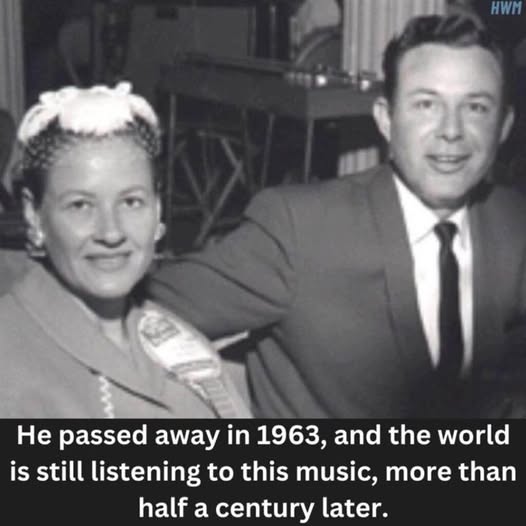But the staying power of the song goes beyond chart numbers. It became one of those tracks that linger in memory: the kind people play on late-night drives, the kind families keep on old jukeboxes, the kind older generations pass down to younger ones. Reeves captured the quiet ache of wanting someone, and that honesty resonated with listeners around the world.
His music reached far beyond the United States, earning him fans in Europe, Africa, and Asia. The gentle clarity of his voice made his songs easy to appreciate, even for audiences unfamiliar with country music. Over time, many artists recorded their own versions of “He’ll Have to Go,” but most listeners still return to Reeves’s original recording.
Sadly, Reeves’s life was cut short in 1964. Even with a brief career, his influence continued. Radio stations kept his songs in rotation, families preserved their favorite records, and his music found new listeners with each generation. He was eventually inducted into the Country Music Hall of Fame, recognizing a legacy that had already shaped the genre.
What makes “He’ll Have to Go” timeless is its simplicity. The song doesn’t rely on dramatic production or complex storytelling. It’s built on clear emotion, steady delivery, and a melody that holds the listener’s attention from the very first line. Reeves showed that country music could be gentle and still deeply moving.
His influence lives on in the modern blend of country and pop, inspiring artists who value smooth vocals, heartfelt lyrics, and accessible production. The foundation he helped build remains part of the genre’s sound today.
After more than six decades, “He’ll Have to Go” remains a reminder of how powerful a simple, well-told song can be. And for anyone who has yet to hear Jim Reeves, sharing his music is like sharing a piece of history—one that continues to feel warm, familiar, and unforgettable.

